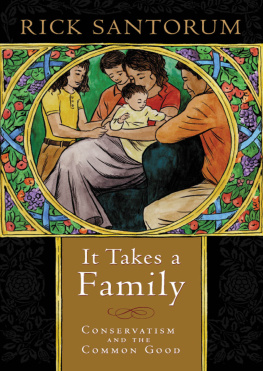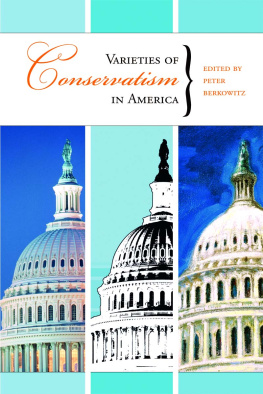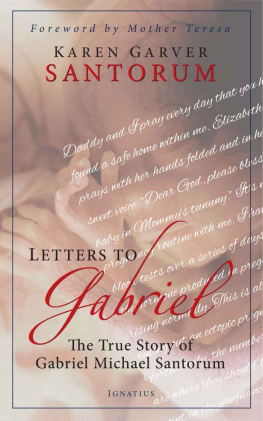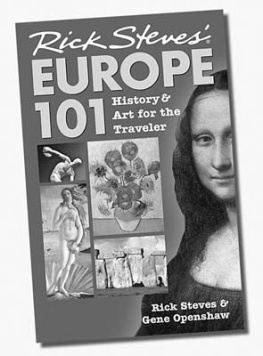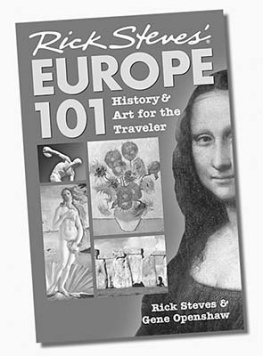Preface
A large part of the district I represented as a freshman congressman in 19931994 was the old steel valley southeast of Pittsburgh. Unlike, say, Silicon Valley, this was not an area bursting with new jobs and economic opportunity. The little mill towns along the Monongahela River looked more like ghost towns. Unlike most congressional Republicans, I represented a lot of people who were poor, but with rich traditions; bitter, but still proud. They also, increasingly, didn't have much hope. My main district office was in the heart of one of those mill towns, McKeesport. Almost every day my staff and I dealt with chronic problems of poverty and despair that were the result of economic dislocation that was only made worse by a liberal vision of how to return these areas to their former glory. The liberal vision wasn't working. So what was the conservative vision? What was my vision?
I came to the uncomfortable realization that conservatives were not only reluctant to spend government dollars on the poor: they hadn't even thought much about what might work better. I often described my conservative colleagues during that time as simply cheap liberals. My own economically modest personal background and my faith had taught me to care for those less fortunate, but I too had not yet given much thought to the proper role of government in this mission.
It happened that at the very same time I was trying to help the people of the Mon Valley, I was assigned the task of responding to President Clinton's call to end welfare as we know it. I led a team in drafting a welfare reform bill for the Republicans on the House Ways and Means Committee. My district and that bill started me down the road to building up a conservative philosophy within which we could use government policies and dollars as a catalyst to renew and re-form the poor families and communities in our country. After I was elected to the Senate in 1994, I met up with someone who was already well down that road of reform, Senator Dan Coats of Indiana. We became the heart of a conservative group who shared a concern for the poor and who wanted to reverse the ill effects that decades of liberal policies had inflicted on the least well off.
While we had some successes in adding many of our ideas to the 1996 Welfare Reform Act and the American Community Renewal Act, our ideas were nonetheless vilified by the liberal architects of the existing system and largely ignored by the vast majority of traditional conservatives. Our fortunes changed with the election of George W. Bush and his Compassionate Conservative agenda. His faith-based program, reflecting his sincere belief that faith-based and community organizations can change people's lives, brought our efforts into the mainstream of political debate.
In spite of the president's good work in this area, I have long believed that no one has yet laid out a coherent and comprehensive theoretical argument for this apparently new type of conservatism. This book is not a public policy agendaalthough there are plenty of new initiatives proposed. Nor is it the book that I originally conceived, which would have focused exclusively on the poor in Americaalthough the poor are at the heart of my arguments. No, this book has turned into something more ambitious. It is an attempt to sketch the past forty years of American history in light of our founders' vision for the pursuit of the common good in a civil society. Just what was our founders' vision? Are we still the country we were born to be? How did we arrive at this state? Where is our destination, if we do not change? And how can we reclaim our rich inheritance from generations past and with it build up a society our founders would revere?
BEFORE I THANK ALL WHO ASSISTED ME in the writing of this book, I want to thank those who brought me to the dancepeople without whom I would have had very little to say. First among these are my wife Karen and our six children, the family for whom I live.
Karen is so much of who I am and what I do that it is hard to give her enough credit in a book, much less a few lines. She is truly my soul mate. There could be no more loving, faithful, honest, and supportive spouse to have accompanied me through the last fifteen years of campaigns, legislative and home-state crises, and most importantly, parenthood. Our hours are long, the pace intense, and the stress high, but she not only helps hold me together, she is often single-handedly the steady guiding light for our six children, ages 3 to 14, too. Karen's wisdom and her actions in our own family permeate my discussion of family in this book. She is my refuge, strength, and inspiration. And aside from all that, she is a twice-published author, having written and edited Letters to Gabriel and Everyday Graces: A Child's Book of Good Manners, respectively. (I realize that I married up!)
I want to thank my terrific children for having patience with me. Putting up with the schedule of a father who is a U.S. senator is tough enough, but for the last few months they have been doubly understanding as I spent hours squirreled away writing. Karen and I have been abundantly blessed with the privilege of raising six magnificent souls. In fact, our lives were incomplete until we had each and every one of our children. My prayer is that the time I poured into this book will result in a somewhat better America in which they may grow and serve their fellow citizens.
When I was growing up, my whole life seemed to be spent around family. There was the occasional lecture about its importance, but I learned about the centrality of family mostly because family was simply what we did. I was blessed with a terrific father and mother who planted seeds that eventually took root. They, like Karen's parents, were very much of the old school. While I didn't appreciate it at the time, I certainly do now, as Karen and I try to raise our children with those same traditional values.
I extend my heartfelt gratitude to my father- and mother-in-law, Ken and Betty Lee Garver, for all of their encouragement and support through the years; but most of all, for giving me Karen.
I also want to thank the people I grew up with in the small, blue-collar town of Butler, Pennsylvania. It was a place where family togetherness, being a good neighbor, and civic participation were on display every day, without complaint or apology. I had so many good role models as a kid: I could not have been more blessed.
THIS BOOK HAS TRULY BEEN a collaborative effort. I want to thank Jeff Nelson, the publisher of ISI Books, for pitching to me the idea of tackling so large a subject. I never thought I would have the time to take on such a project, and I wouldn't have without the help of Jeff Rosenberg and the Marks BrothersMark Henrie, Mark Rodgers, and Mark Ryland. Jeff Rosenberg helped immensely by working with me to interview many of the people you will meet in this book and by writing many of the chapter first drafts. Mark Henrie was an outstanding editor and counselor who drew out of me in countless conversations the philosophical basis for my actions in Washington and made sure this was woven throughout the book. I thank him for all of his excellent advice and contributions. He also had his work cut out for him in keeping me from running down numerous rabbit trails.
Mark Rodgers is the chief of staff for the Senate Republican Conference, which I chair. We have been a team since he appeared in September 1990 to help engineer my somewhat miraculous first congressional race. Mark is a great blessing to me. Without a doubt, much of my political and public policy success is attributable to his superb planning, management, and creative skills. One of Mark's interests is in shaping the popular culture to be a more positive influence in our society, and in this regard he has led many efforts on and off the Hill that are having a positive impact. I want to thank him especially for everything he put into the cultural capital section of the book.


